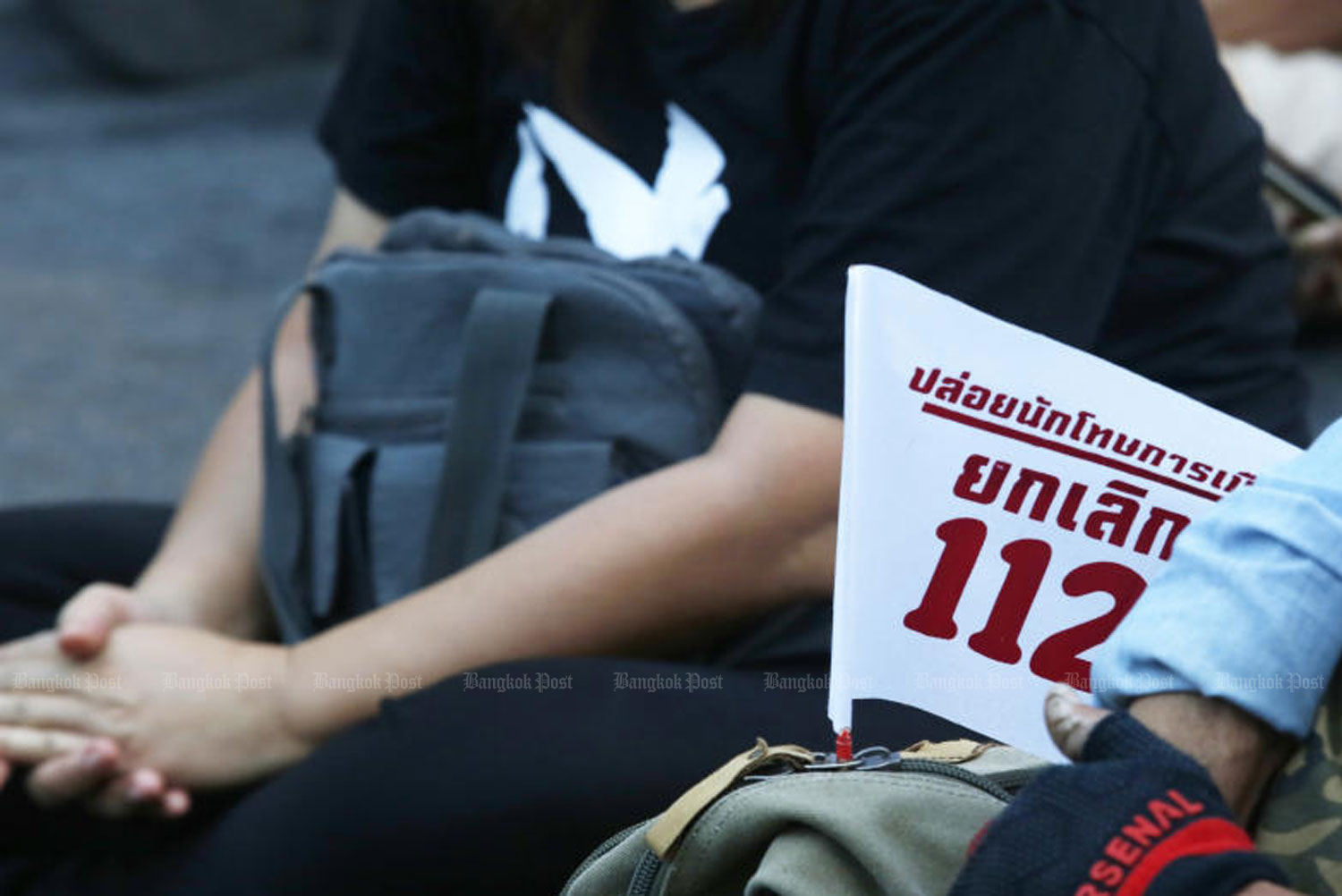
The Lawyers' Association of Thailand has proposed forming a panel to screen complaints related to the lese majeste law in a bid to prevent the law from being exploited.
The association's chairman, Narinpong Jinapuck, said on Friday the key problem with Section 112, also known as the lese majeste law, relates to its enforcement as everyone can file a related complaint, and it can be used as a political tool.
To solve the matter, Mr Narinpong said a working panel should be formed to screen each complaint to see whether it falls under Section 112 before it is submitted to a court.
The court must remain neutral and respond to a suspect's bail request fairly, he said, adding the Bureau of the Royal Household should not be dragged into such affairs.
Mr Narinpong discussed how some political parties want to change Section 112. He said the country needs specific laws protecting the three pillars of Thai society — nation, religions and monarchy.
He said each of these three pillars has a law, with Section 116 covering national security offences and Section 206 covering religion-related offences, each being backed with a maximum sentence of seven years in jail. Section 112 protects the monarchy, with prison terms ranging from three to 15 years.
Mr Narinpong said a proposition by some parties to scrap Section 112 is, therefore, irrational.
Another proposal to reduce the prison term to one year is equally nonsensical, he said, as sentencing serves the same function as Section 116 and 206.
Controversial issues relating to Section 112 were not included in a memorandum of understanding signed on Monday by the Move Forward Party (MFP) and its coalition partners, as they are divided on the matter. But the MoU did state that all parties have agreed not to affect Thailand's position as a state, as a democracy under a constitutional monarchy, or the status of the monarchy.
MFP leader Pita Limjaroenrat said the matter would be dealt with in parliament later. The MFP wants to reduce prison terms and stipulate that only the Bureau of the Royal Household can lodge a complaint.
Pheu Thai strategist Prommin Lertsuridej also backed changes to Section 112 on plaintiffs and enforcement.
